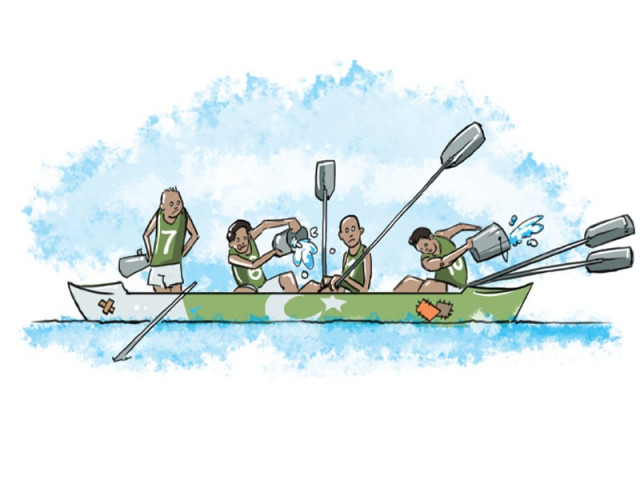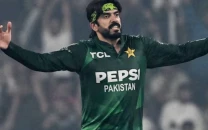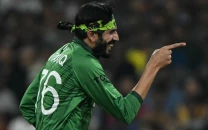Feature: Rowing against the tide
Rowing, as a competitive sport, has enjoyed a chequered history in Pakistan.

The country did manage four gold medals in the 2004 South Asian Games, but have been unable to do anything worthwhile since then. Over the years, Karachi has emerged as the major centre for rowing activities, with the Karachi Boat Club (KBC) being in the forefront of organising various events throughout the year.
Arif Ikram, a KBC member, has been the driving force
behind the activities at the club, with a major emphasis on encouraging the participation of schools. Although, only the elite schools were targeted initially, KBC has now opened its facilities to the rest as well, hoping for an increased number of enthusiasts.
“Initially there was just one school that took part in the activities,” Ikram told The Express Tribune. “Now the
number of schools has risen to 17, with around 500 rowers participating in various annual competitions. Middle and lower-income schools aren’t charged any fee for participation and the number of rowers from outside Karachi has also increased.”
The KBC holds 18 events
annually compared to just four held by the Pakistan Rowing Federation (PRF),
including the National Rowing Championship. In addition, the rowers trained by KBC have participated in international tournaments, the highlight being Manal Kamran and Zahra Currimbhoy representing Pakistan at the World Junior Rowing Championship held in July. Pakistan ended the competition 19th out of 52 participants.
Obstacles aplenty
Apart from Kamran and Currimbhoy’s participation, Pakistan’s involvement in key global events is negligible. The PRF blames this on the lack of equipment that makes international participation a difficult task.
Meanwhile, a look at the exorbitant sums that rowing equipment costs tells us why the sport isn’t that popular: a single scull boat costs Rs 350,000 while a quadruple scull boat is worth a whopping Rs 1.6 million. Added to this is the fact that the logistics involved in moving people and equipment to suitable practice facilities cost a lot.
Pakistani rowers do not have access to advanced coaching techniques which Kamran blamed as a major disadvantage.
“We have very dedicated coaches but we don’t have access to the advanced coaching techniques that rowers in other countries have,” she said. “Our result was a good one considering the drawbacks we faced.”
Without appropriate funding from the government, it is unlikely that rowing can take off as a major sport in Pakistan. Despite the enthusiasm for rowing that can be seen among the young people that regularly head to the KBC, it will remain a minor sport unless the expenses involved in pursuing it are brought down.
The writer is a sub-editor at The Express Tribune
Published in The Express Tribune, September 21st, 2011.



















COMMENTS
Comments are moderated and generally will be posted if they are on-topic and not abusive.
For more information, please see our Comments FAQ